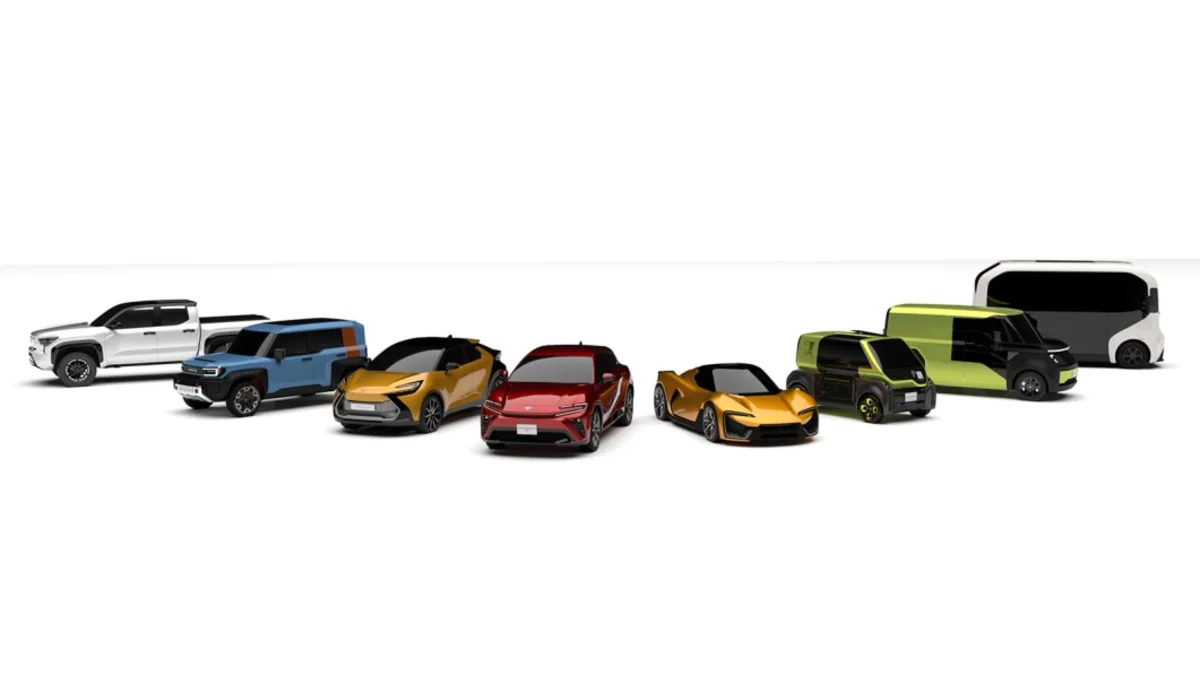When Akio Toyoda stepped down as CEO of Toyota in January, it seemed like an unofficial capitulation to the pounding his company's been taking in the media. Analysts and press have pummeled Toyota for being slow to embrace electric vehicles, and incoming leader Koji Sato is making EVs a priority. However, that doesn't necessarily mean using Toyota's manufacturing might to fast-track EVs into production. In the short term, it may be just the opposite.
According to an wide-ranging article in Automotive News, Toyota is taking an almost blank-slate approach to its EV strategy. The trade publication claims to have spoken anonymously with several high-ranking insiders, drawing the conclusion that Toyota may be dissatisfied with its e-TNGA platform that underpins its first EVs, the bZ4X and Lexus RZ, as well as the Chinese-market bZ3.
Recently, AN says, engineers at Toyota disassembled a Tesla Model Y to study its competition, a common practice among automakers. In California, which has over five times more EV registrations than the next most EV-eager state according to the Department of Energy, the Model Y outsold Toyota's wildly popular RAV4, and the Model 3 outsold the Camry last year.
What the engineers found were innovative manufacturing techniques that led one unnamed insider to call the Model Y "a work of art." The Model Y's "giga-press" manufacturing technique reduces the main body of the car to two large sections, and the battery pack acts as part of the vehicle's structure. Toyota's e-TNGA platform on the other hand, requires many more stamped pieces. One Toyota source told AN that Tesla's approach resulted in a vehicle that was 220 pounds lighter with hundreds of fewer parts. Additionally, Toyota's battery packs are installed separately and thus limited in size.
All that translates to, in consumer-facing parlance, less range and the lack of features such as a frunk. Some of these restrictions come from the fact that the e-TNGA platform was originally developed for gasoline and hybrid cars in 2015. In fact, Toyota is still in the process of converting some of its factories around the world to accommodate it. But Sato and his team have halted development of some upcoming e-TNGA vehicles in order to work on a clean-sheet platform specifically tailored to EVs, AN says.
Toyota said that the plan was underway before Akio Toyoda announced his retirement. The move seemed timed for optics, but Toyoda led the company for 14 years, longer than several other influential presidents. Additionally, Toyota plans to continue with its multi-pronged approach, offering hybrids, PHEVs, and hydrogen cars to suit various markets around the world.
The AN story points out that Toyota gleaned considerable EV experience thanks to its joint venture with China's BYD, with which it developed the bZ3. Toyota also has a dedicated zero-emissions vehicle R&D center and has announced plans to update its Kentucky factory in order to build EVs there by 2025.
However, Toyota is not entirely sure that EVs made by Tesla or BYD would stand up to the company's rigorous internal quality standards. "If BYD tests their batteries to a life span of 100,000 kilometers, we test ours to 200,000," one insider told AN. That kind of extra scrutiny takes time and money, but have helped cement Toyota's legendary reputation of durability and build quality. Sources also indicated that Toyota wants to make sure it can secure enough battery materials to avoid bottlenecks in manufacturing before going all-out on EVs.
One such executive told AN, "We have to plan for the next 20 years, not just the next five."


Sign in to post
Please sign in to leave a comment.
Continue